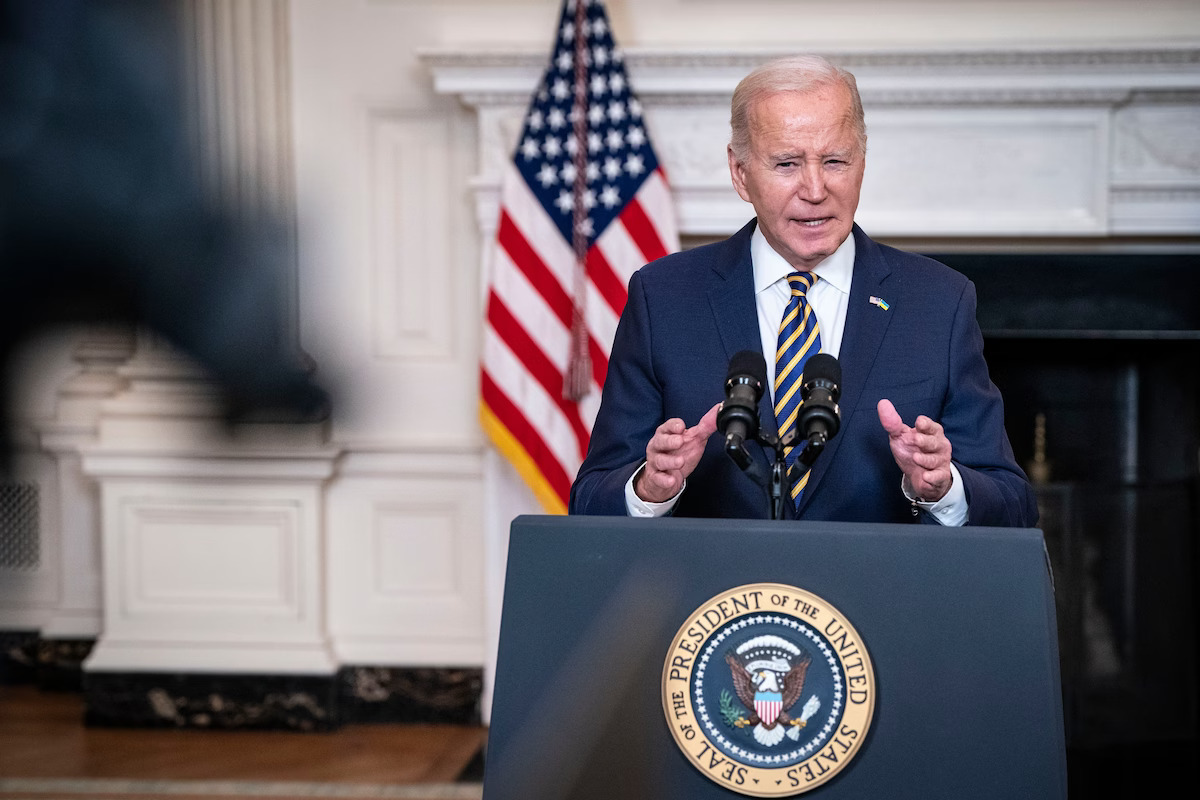The origin of the saga began with President Joe Biden’s urgent appeal to Congress for additional funding to support Ukraine and Israel, while simultaneously addressing illegal migration at the U.S.-Mexico border, a major political challenge for his administration.
Despite initial progress, the situation took a dramatic turn when the proposed congressional deal collapsed, following intervention from former President Donald Trump. President Biden now finds himself navigating the aftermath and seeking to capitalize politically on the fallout.
In the midst of negotiations, bipartisan efforts emerged, fueled by months of discussions involving Senate Democrats, Republicans, and senior Biden administration officials. However, demands from Republican leaders, including former House Speaker Kevin McCarthy and Senate Minority Leader Mitch McConnell, to tie border security measures to Ukraine aid complicated the process.

Joe Biden (Credits: Washington Post)
President Biden faced criticism from within his own party for engaging in negotiations that risked alienating progressive activists. Nonetheless, he saw potential benefits in addressing immigration concerns, despite the political risks involved.
As negotiations progressed into 2024, optimism grew, with President Biden expressing confidence in reaching a resolution. However, tensions mounted as the proposed deal faced resistance in the House, particularly from newly-elected Speaker Mike Johnson.
The situation escalated further when former President Trump publicly denounced the proposed agreement, effectively derailing any hopes for bipartisan consensus. With Republican opposition mounting, the deal ultimately collapsed, prompting President Biden to publicly assign blame to Trump and his supporters.
Despite the failure to secure a bipartisan agreement, the episode marked a significant attempt to address long-standing issues in immigration policy. However, the fallout underscores the ongoing political divisions surrounding the issue, with both parties seeking to capitalize on the situation for their own ends.






















